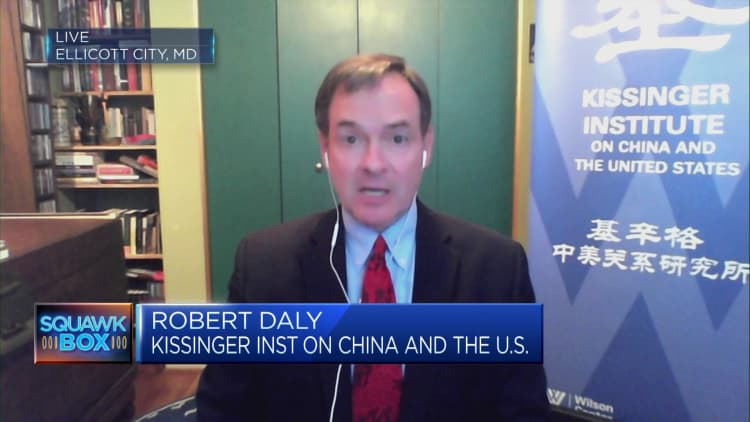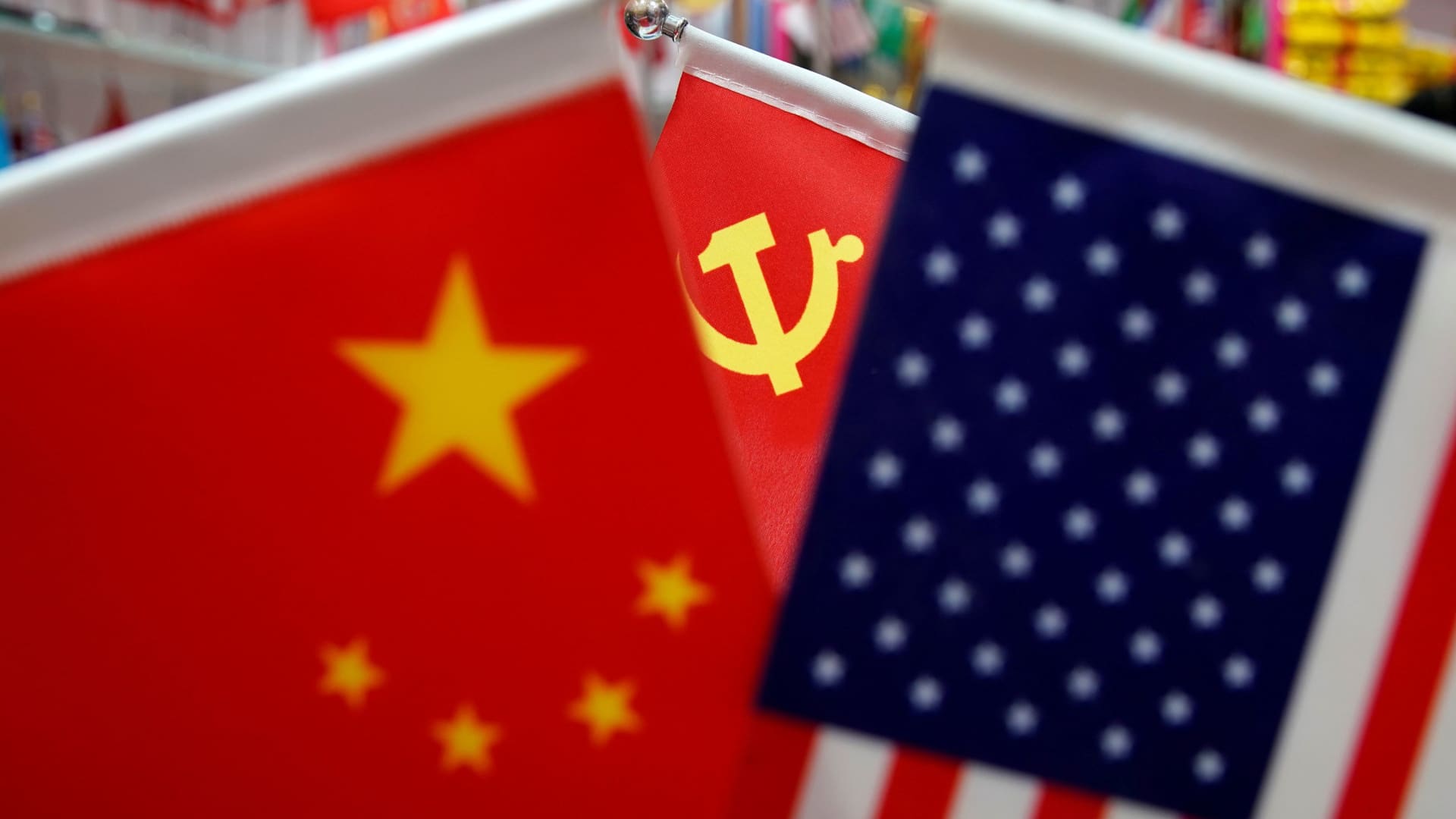Blinken’s trip to Beijing over the past two days — the secretary of state’s first under the Biden administration — marks the resumption of high-level U.S.-China government meetings after more than four tense months.
Ellie Song | Reuters
BEIJING — Antony Blinken, the U.S. secretary of state, said on Monday that he had failed to restart military dialogue with China, despite earlier hopes to reopen that channel of communication.
Blinken’s trip to Beijing over the past two days — the secretary of state’s first under the Biden administration — marks the resumption of high-level U.S.-China government meetings after more than four tense months.
During that time, military communications were interrupted.
Ministry of Defense of China Refuse to speak to American counterparts In early February, after a suspected Chinese spy balloon was spotted in U.S. airspace. Earlier this month, the two defense ministers attended the annual event in Singapore, but there was no formal meeting.
The balloon incident delayed Blinken’s trip to Beijing by more than four months. The secretary arrived on Sunday and held talks with Chinese President Xi Jinping, director of the Communist Party’s Central Foreign Affairs Office Wang Yi and State Councilor and Foreign Minister Qin Gang.
Blinken told NBC News on Monday, Spy Balloon “Chapter should be closed.”

He also told reporters on Monday that during the talks he had “repeatedly” raised the need for direct communication between the two countries’ militaries.
“I think it’s absolutely critical that we have this kind of military-to-military communication,” Blinken said. “I think the recent events that we’ve seen in the air and at sea just underscore the need for that.”
“At the moment, China does not agree to move forward with this process,” he said, noting that the United States would continue to work to restore those channels of communication.
The US shot down an alleged Chinese spy balloon in February. Beijing insists it was a weather balloon that went off course.
Earlier this month, U.S. Indo-Pacific Command said A Chinese warship came within 150 yards of a US destroyer in the Taiwan Strait.
Beijing considers Taiwan part of its territory and has no right to independent diplomatic relations. The United States recognizes Beijing as the sole government of China, but maintains informal relations with the democratically self-governed island.
U.S. sanctions are at work
One problem for the Chinese is that the United States has sanctioned Chinese Defense Minister Li Shangfu.
In 2018, the United States sanctioned Lee During his tenure as head of China’s Equipment Development Department, he oversaw Chinese purchases of Russian fighter jets and equipment.
when asked in may Will these sanctions be lifted, Even for negotiating purposes, a State Department spokesman said no.
“You can’t discuss sanctions at the same time,” said Shen Yamei, director and associate researcher at the Institute of American Studies at the China Institute of International Studies, a state-backed think tank. That’s according to a CNBC translation of her remarks in Mandarin.
She generally described Blinken’s trip to Beijing as a “very good turning point”.
Shen previously told CNBC that Beijing refuses to answer calls to the military hotline because doing so would acknowledge tensions — and prompt the United States to take more extreme action.
China often does not answer the phone – A hotline for emergencies.
Ahead of Blinken’s trip to Beijing, the State Department said the secretary would meet with “senior (People’s Republic of China) officials, at which point he will discuss the importance of maintaining open lines of communication to responsibly manage U.S.-China relations.”
On Monday, Blinken said other senior U.S. officials may soon visit China after his trip, and vice versa.
He said he believed the discussions over the past few days had taken a “positive step” toward responsibly managing U.S.-China relations.


